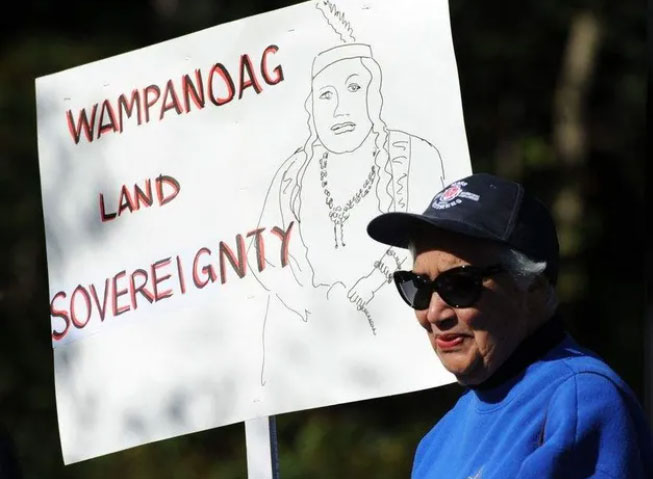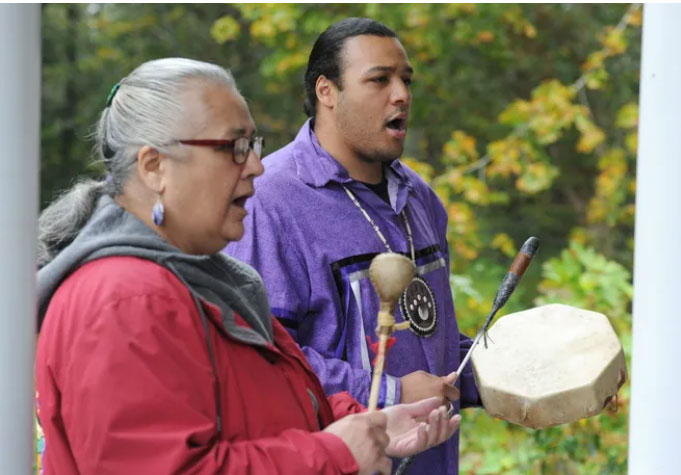Our Journey
On February 27, 2020, the U.S. Court of appeals upheld a lower court decision declaring the government had not been authorized to take the Mashpee Wampanoag’s land into trust in 2015. On March 3rd, 2020 the 321 acres of tribal land was to be taken out of trust, disestablishing the reservation. By taking their land out of federal trust, the Interior Department removed the ability for The Wampanoag to govern on their land.
While Indigenous America was responding to the growing number of coronavirus cases in its communities, the Trump administration was busy revoking the reservation status of the Mashpee Wampanoag tribe in Massachusetts. It was from this injustice that ‘The Native Land Reparation Pledge Project’ emerged.


As a show of support for Mashpee Wampanoag Tribal land to remain a reservation (land in trust) under federal law, The Peace Abbey Foundation, and The East Sandwich Quaker Meeting House in solidarity with The Mashpee Wampanoag began to organize both members of their communities and the citizens of the Cape Cod region. This was an effort to bring awareness and support to the impending action being taken by the Trump White House and the US Court of Appeals.
Having a reservation is essential to self-governance and access to housing, health care, education, judicial services, and language reclamation, among other things. The Mashpee Wampanoag people have suffered debilitating injustices concerning their ancestral homeland for 500 years.
As a show of support for Mashpee Wampanoag Tribal land to remain a reservation (land in trust) under federal law, The Peace Abbey Foundation, and The East Sandwich Quaker Meeting House in solidarity with The Mashpee Wampanoag began to organize both members of their communities and the citizens of the Cape Cod region. This was an effort to bring awareness and support to the impending action being taken by the Trump White House and the US Court of Appeals.
Having a reservation is essential to self-governance and access to housing, health care, education, judicial services, and language reclamation, among other things. The Mashpee Wampanoag people have suffered debilitating injustices concerning their ancestral homeland for 500 years.

In late March of 2021, The Supreme Court of the United States of America denied the petition of the lower court to revoke the federal status of various tribes which ended the 8 years of litigation in the Mashpee Wampanoag Land Trust case.
On December 31, 2021, The Biden administration reestablished the Mashpee Wampanoag Tribe’s reservation
From the Justice.gov website: “After eight years of litigation, the Mashpee Wampanoag Tribe will finally be able to use more than 300 acres of land in the Cape Cod and southeastern Massachusetts area for development and benefit of the Tribe,” said Acting Associate Attorney General Benjamin C. Mizer. “This development will right a historical wrong and is an example of the Justice Department’s steadfast commitment to upholding the rights of Tribes.”

